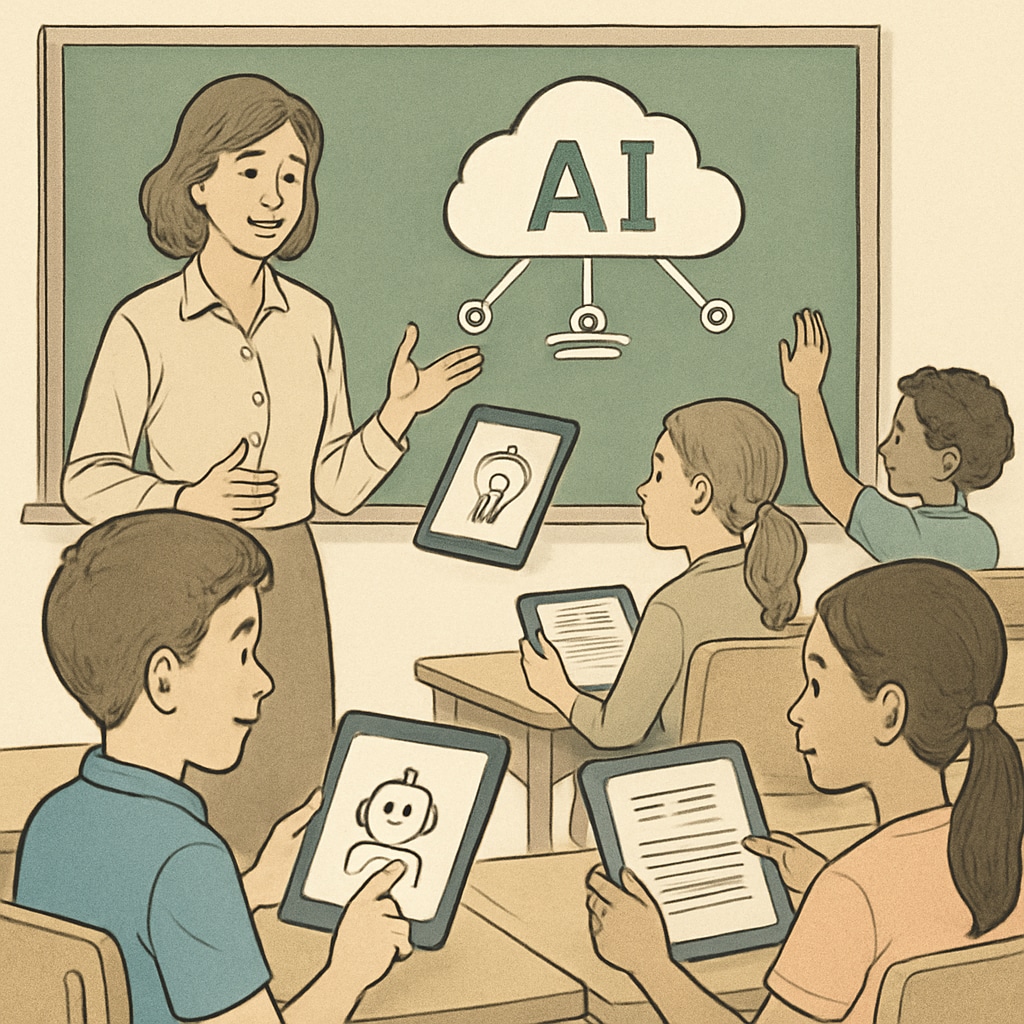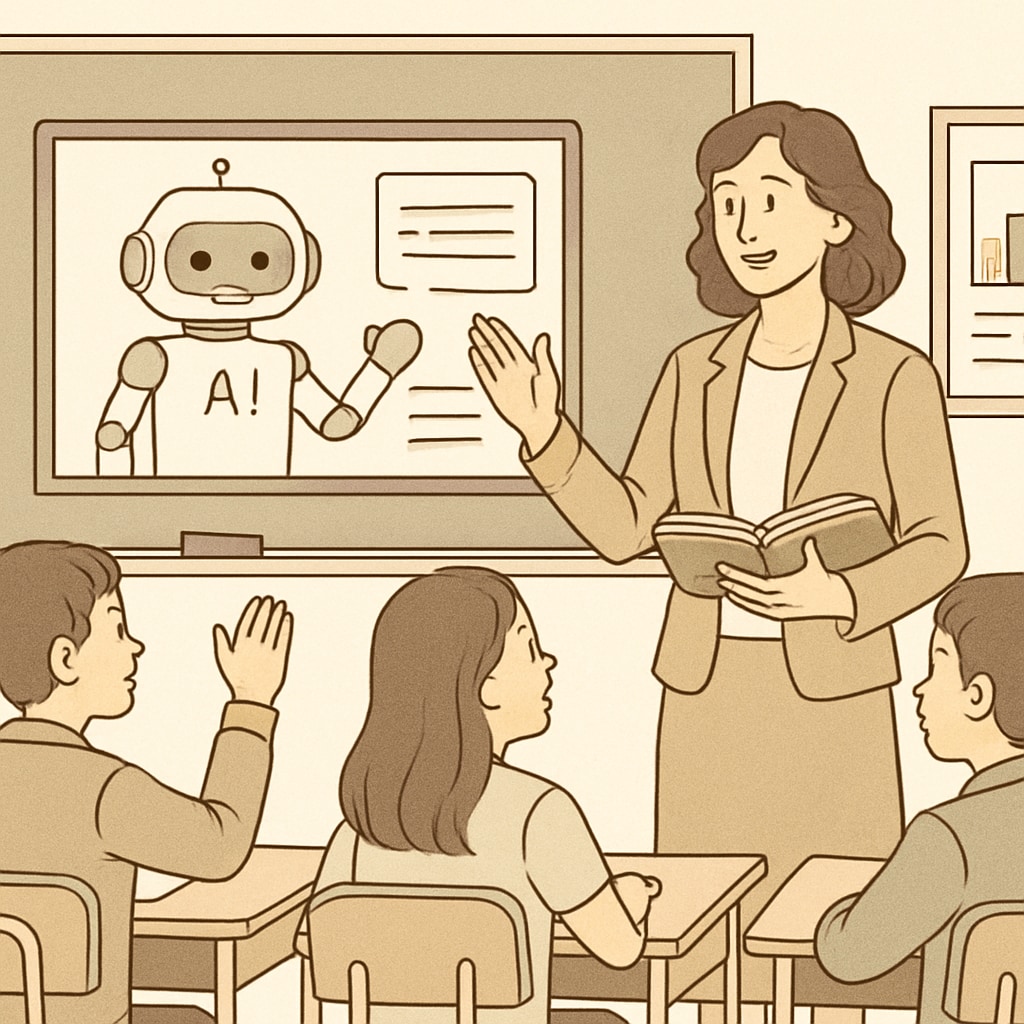As AI technologies like Google Gemini continue to revolutionize the education sector, the teaching profession is undergoing an unprecedented value reassessment. The integration of AI in classrooms is raising serious questions regarding teacher value, compensation structures, and the future of education. While AI promises efficiency and scalability, it also challenges the traditional roles of educators, urging us to critically examine how teachers fit into this new paradigm.
The Rise of AI in Classrooms: A Double-Edged Sword
AI tools such as Google Gemini, ChatGPT, and adaptive learning platforms are transforming the education landscape. These technologies can analyze student performance, personalize learning plans, and even provide instant feedback. For example, an AI tutor can evaluate a student’s writing skills and suggest improvements within seconds. This level of efficiency is unmatched by human teachers.

However, this transformation is not without its challenges. One significant concern is the potential devaluation of human teachers. If AI can perform many traditional teaching tasks more efficiently, will society still value the unique skills and emotional intelligence that teachers bring to the table? Moreover, how will this shift impact teacher salaries, which are already a contentious issue in many parts of the world?
Reassessing Teacher Value in an AI-Driven World
Historically, teachers have been the cornerstone of education, not only imparting knowledge but also mentoring and inspiring students. In an AI-driven classroom, their role may shift from knowledge providers to facilitators and emotional supporters. While this redefined role is vital, it may not be as easily quantifiable as tasks performed by AI. As a result, there is a risk that teacher compensation could stagnate or even decline, as their contributions become less tangible in a data-driven educational ecosystem.

Furthermore, the introduction of AI could widen existing inequalities in education. Schools with larger budgets may invest heavily in sophisticated AI systems, potentially reducing their reliance on human teachers. On the other hand, underfunded schools may struggle to afford these technologies, further marginalizing both students and teachers in those environments.
Economic Implications of AI for Teachers
One of the most critical issues is how teacher salaries will be affected. The efficiency introduced by AI could lead to fewer teaching positions, thereby intensifying competition for jobs. According to an article on Britannica, AI has already disrupted various industries, and education is no exception. Will teachers in the future need to acquire additional technological skills to remain competitive, or will their salaries fail to reflect the added responsibilities of managing AI systems?
Moreover, the focus on cost-cutting in many education systems could result in a preference for AI over human expertise. While AI might be viewed as a one-time investment, teachers require continuous salaries and benefits. This economic perspective could further de-prioritize the value of human educators.
Balancing AI and Human Expertise in Education
Despite the challenges, AI also offers opportunities for teachers to enhance their roles. By automating repetitive tasks such as grading and attendance, AI can free up teachers’ time to focus on creativity, critical thinking, and emotional support—areas where AI still falls short. For example, a teacher can use AI insights to tailor lessons to individual student needs, fostering a deeper connection between the teacher and the learner.
As Wikipedia explains, education is not just about knowledge transfer; it is a social and emotional endeavor. Teachers play a crucial role in building resilience, empathy, and interpersonal skills in students—qualities that AI cannot replicate. Therefore, the future of education should not be about replacing teachers but about redefining their roles to complement AI technologies.
Conclusion: The Way Forward
AI is undoubtedly a game-changer for the education sector, but its impact on teacher value and compensation remains uncertain. As we move forward, policymakers, educators, and technologists must collaborate to ensure that the integration of AI enhances rather than diminishes the teaching profession. This includes reassessing teacher compensation to reflect their evolving roles and ensuring equitable access to AI technologies for all schools.
Ultimately, the goal should be to create an educational ecosystem where AI and human expertise coexist, each amplifying the strengths of the other. Only then can we ensure a future where both students and teachers thrive in an AI-driven world.
Readability guidance: Short paragraphs, balanced use of active voice, and strategic placement of transition words ensure clarity. Key points are summarized in lists and supported by external references to enhance credibility.


